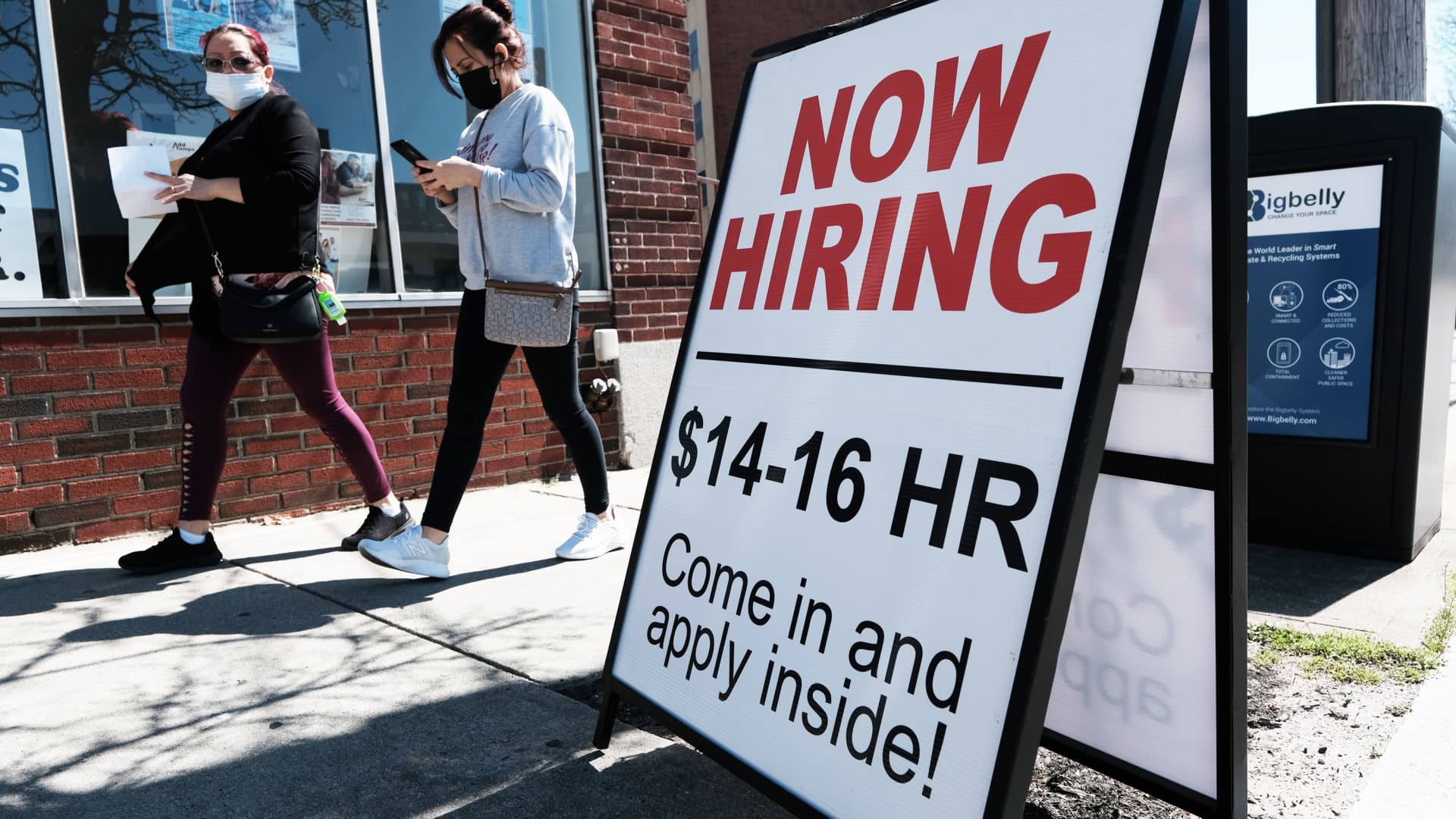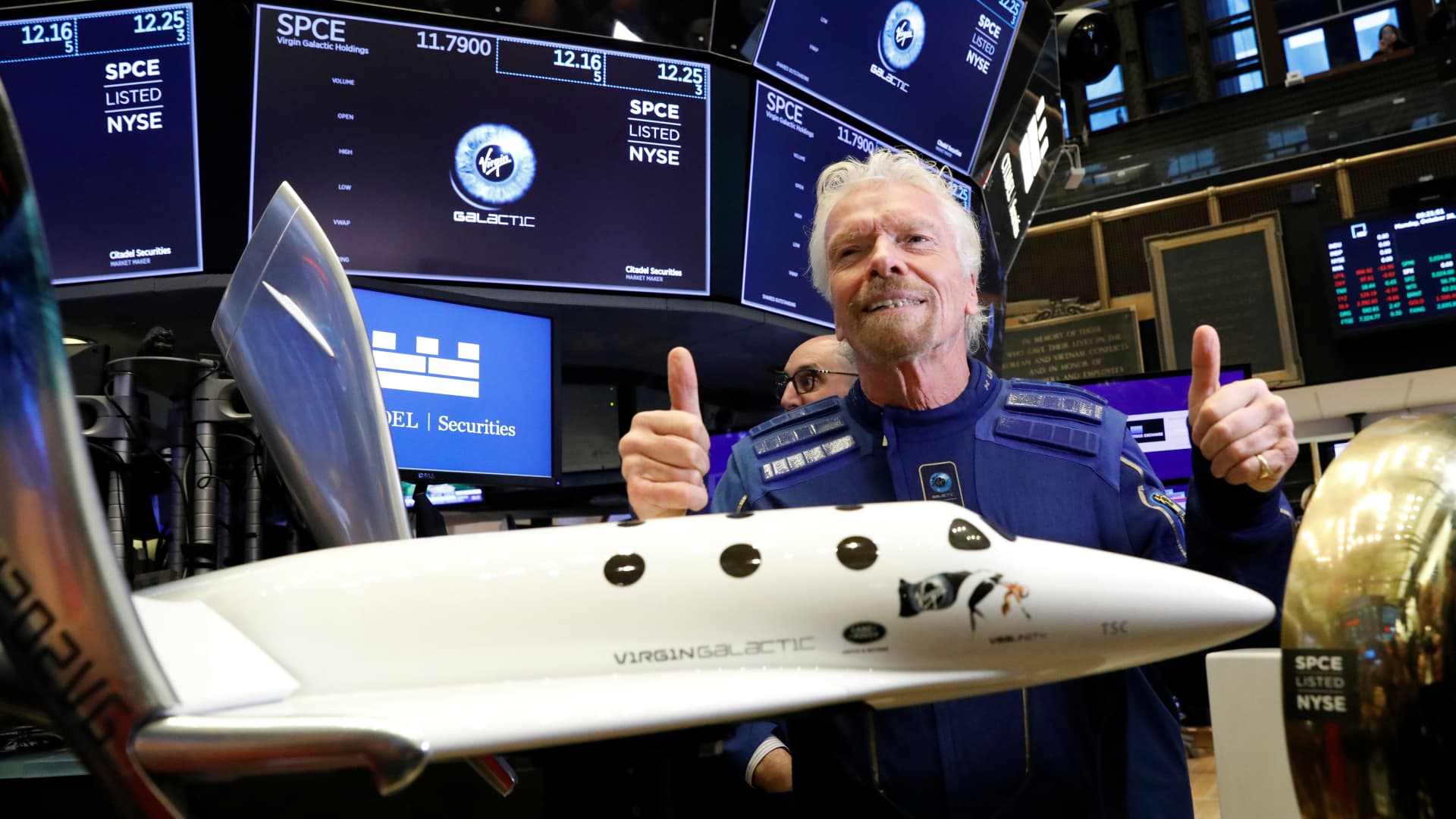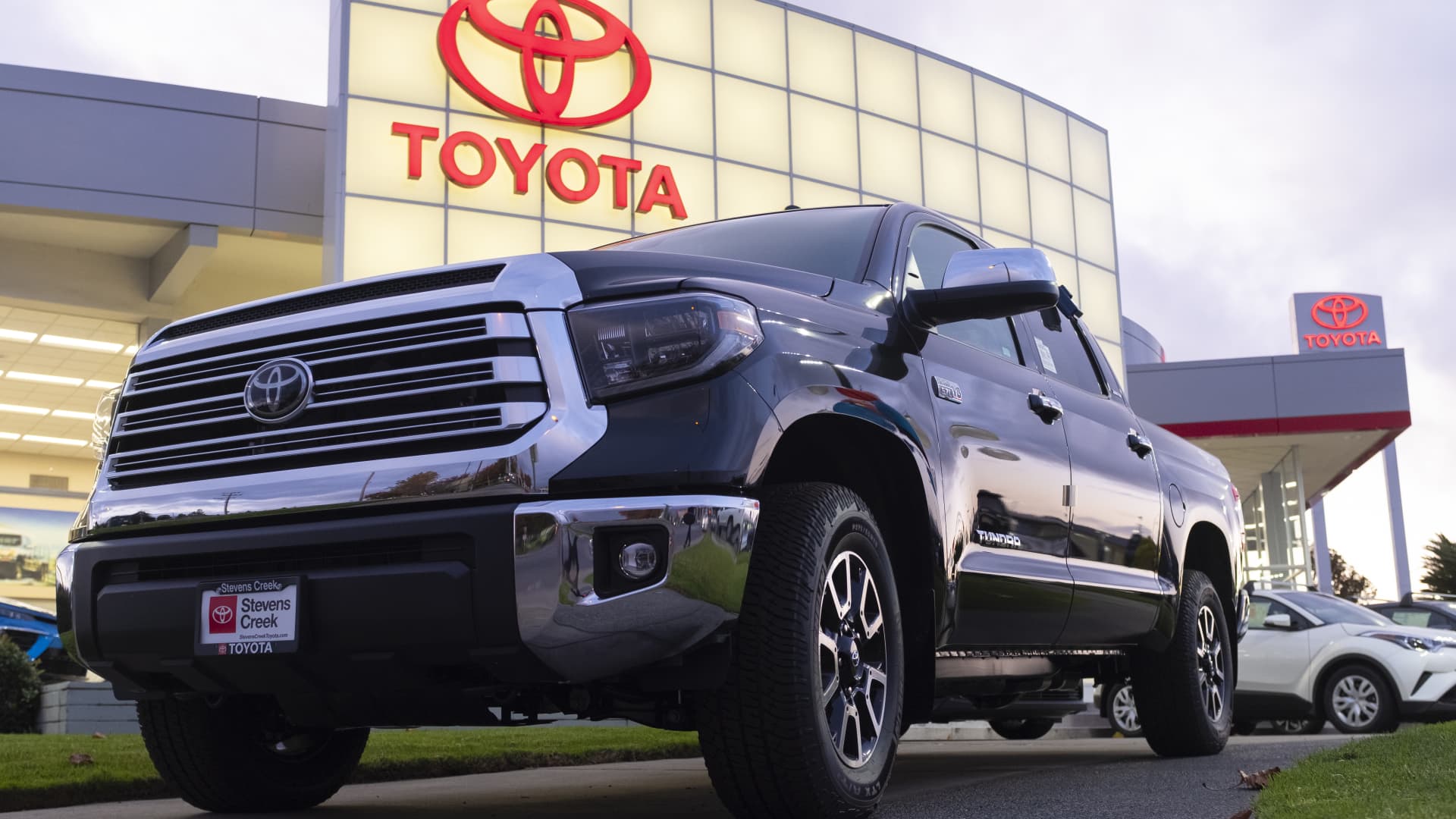
Here are the most important news, trends and analysis that investors need to start their trading day:
- Stock futures rise after June jobs report
- U.S. added 850,000 jobs in June
- Robinhood files for highly anticipated initial public offering
- Virgin Galactic plans to launch Richard Branson to space on July 11
- Toyota outsells GM in U.S. for first time in a quarter
1. Stock futures rise after June jobs report
Get Southern California news, weather forecasts and entertainment stories to your inbox. Sign up for NBC LA newsletters.
U.S. stock futures rose Friday morning after the release of the better-than-expected June jobs report. All major Street indexes finished in the green Thursday, as Wall Street kicked off the second half of 2021 on a positive note after a strong first six months. The S&P 500 advanced 0.5% to 4,319.94, setting its sixth consecutive record high. The Dow Jones Industrial Average added 131 points, finishing the session at 34,633.53. The 30-stock Dow has risen for three sessions in a row and sits at its highest level since June 4. The tech-heavy Nasdaq on Thursday rose 0.13% to 14,522.38. The major averages are all positive for the week and on pace for their second straight weekly gain.
2. U.S. added 850,000 jobs in June

Nonfarm payrolls rose by 850,000 in June, the Labor Department said Friday. The figure is better than the 706,000 jobs that economists had expected, according Dow Jones estimates. However, the unemployment rate ticked up to 5.9%, while projections called for it to decline to 5.6%. Average hourly earnings rose 0.33% in June and 3.6% on a year-over-year basis; both figures are in line with estimates. The Labor Department's jobs reports for April and May missed Wall Street's expectations, as businesses across industries indicated they were having challenges filling open positions.
Money Report
3. Robinhood files for highly anticipated initial public offering

In its highly anticipated IPO filing Thursday, Robinhood Markets revealed it has 18 million retail clients and more than $80 billion in customer assets. The free stock trading pioneer said it was profitable in 2020, posting $7.45 million in net income on net revenue of $959 million, as its number of funded accounts more than doubled that year. In 2019, Robinhood lost $107 million on $278 million in net revenue.
Robinhood ended the first three months of this year with a loss of $1.4 billion, which is connected to the emergency fundraising it completed during the height of the Reddit-fueled GameStop frenzy in January. Revenue in the quarter jumped 309% to $522 million, compared with $128 million in the first quarter of 2020. About 38% of Robinhood's revenue comes from options trading accounts. Equities account for 25% of revenue, while crypto represents 17%.
The company, which was founded in 2013, is looking to raise $100 million in its IPO. It intends to list on the Nasdaq and trade under the ticker "HOOD."
4. Virgin Galactic plans to launch Richard Branson to space on July 11

Space tourism company Virgin Galactic scheduled its next test spaceflight for July 11, and company founder Sir Richard Branson intends to be onboard. The timing is particularly noteworthy, as the U.K. billionaire aims to beat Jeff Bezos to space. The Amazon founder and world's wealthiest person is scheduled to launch on July 20 with his own company, Blue Origin. Shares of Virgin Galactic soared about 30% in premarket trading to around $56 apiece. The scheduled launch will be Virgin Galactic's fourth test spaceflight to date. Branson started Virgin Galactic in 2004, and the company began trading on the New York Stock Exchange in October 2019.
5. Toyota outsells GM in U.S. for first time in a quarter

Toyota Motor sold more vehicles in the U.S. than General Motors in the second quarter, marking the first time the Japanese automaker has done so in a three-month reporting period. On Thursday, Toyota said it sold 688,813 vehicles in America from April through June, narrowly edging out GM's 688,236 vehicles. Toyota's results topped analyst expectations; GM's came up short. Toyota may become the bestselling automaker in the U.S., depending on where Ford's results come in. GM's crosstown rival reports the figure Friday morning, and analysts forecast second-quarter U.S. sales of 645,000 vehicles. The last time GM was not America's top-selling automaker for a quarter was the third quarter of 1998, when Ford outsold them, according to Edmunds.
The automotive industry has been managing through a shortage of semiconductors, disrupting production schedules at a time when consumer demand for new vehicles has been strong. Toyota and other Japanese automakers have so far managed the chip crunch better than U.S. rivals.
Correction: The Nasdaq on Thursday closed at 14,522.38. An earlier version misstated the figure.
— Follow all the market action like a pro on CNBC Pro. Get the latest on the pandemic with CNBC's coronavirus coverage.






